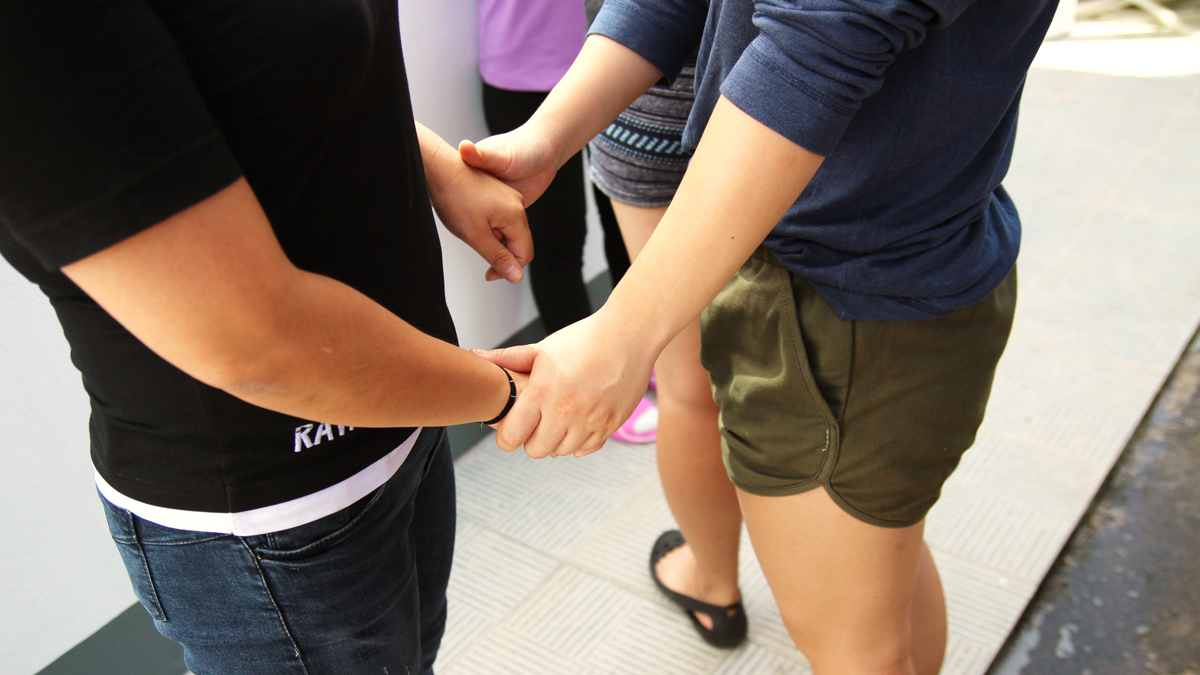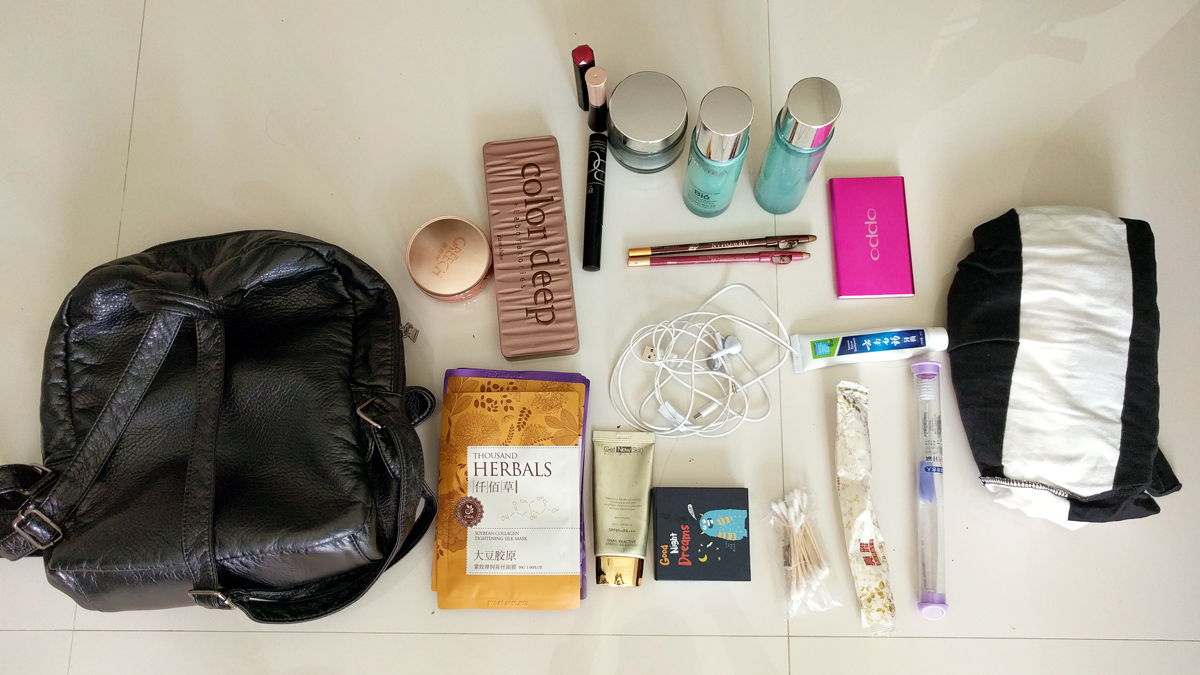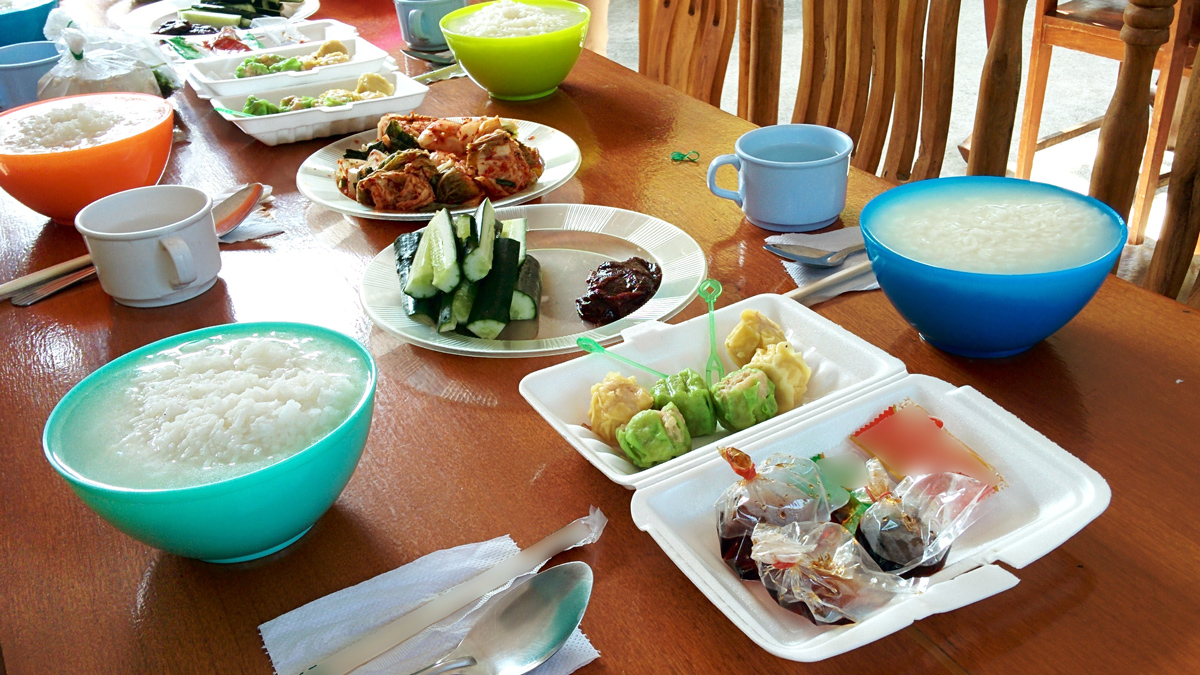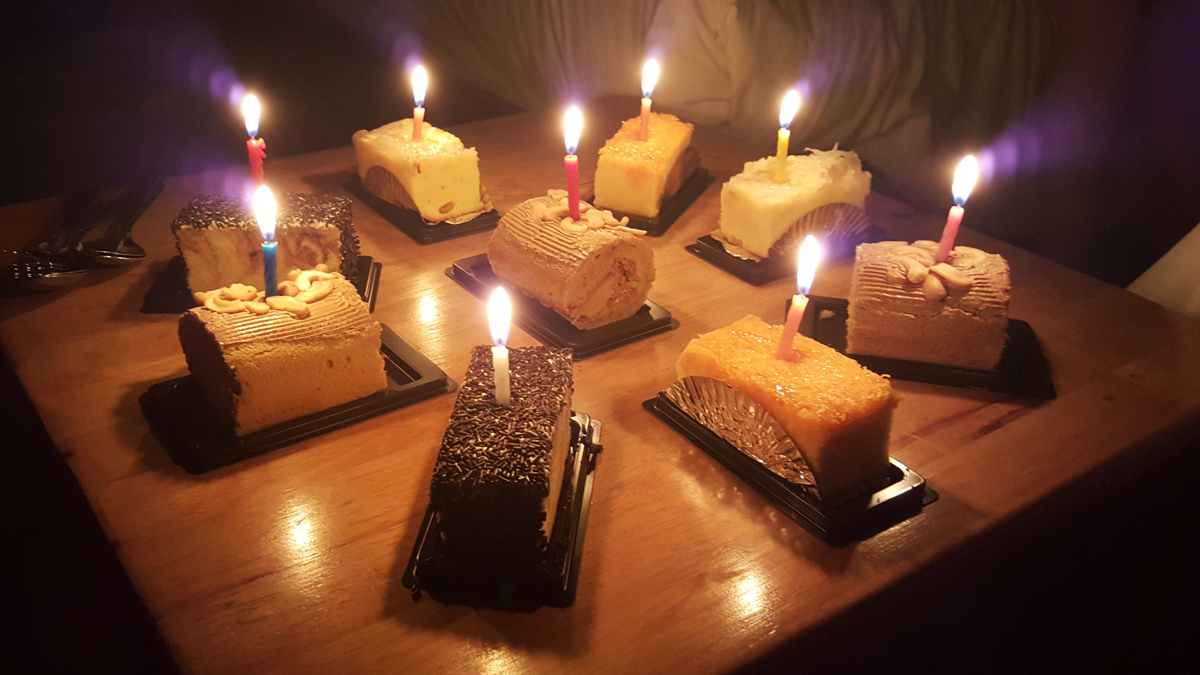Empowering North Korean Refugees | An Overview of LiNK’s Programs
North Korean people live in the most authoritarian and closed country in the world, deprived of their basic human rights and potential. For decades, they’ve faced a brutal dictatorship, systematic oppression, and enforced poverty. Despite the circumstances, North Koreans are striving towards freedom from both inside and outside of the country, creating irreversible change.
Since its founding in 2004, Liberty in North Korea has not wavered in its vision- a day when every North Korean man, woman, and child can live free and full lives. Yet during that time, our approach has shifted, transformed, and evolved. With an issue as complex as North Korea and as fundamental as human rights, we needed a holistic set of programs to enact change at multiple levels.
Refugee rescues are just the beginning. Over the years, we’ve expanded our approach and developed new ways to support and build the capacity of North Korean people. Here’s how we’re working together to accelerate change.

Rescue and Resettlement Support
The journey to freedom is not an easy one, but it begins with a choice. A choice to hope, to live, and sometimes to leave. Over the last decade, more than 1,300 North Korean refugees and their children have made this difficult decision and reached freedom through LiNK’s networks.
LiNK provides critical humanitarian assistance to North Korean refugees in China, helping them escape through a “modern day underground railroad.” It’s a dangerous 3,000 mile journey from the border of North Korea to Southeast Asia, from where they can safely resettle in South Korea or the U.S. The route is dotted with security checkpoints, state-of-the-art surveillance, and the constant risk of being forcibly sent back. The Chinese government refuses to recognize North Koreans as refugees, instead cooperating with the North Korean regime. If caught, North Korean refugees are forcibly returned to North Korea, where they may face severe punishment, imprisonment, torture, and even execution.
Helping North Koreans escape has only become more challenging since the start of the pandemic. Extreme border lockdowns and unprecedented restrictions made the journey nearly impossible and left many vulnerable refugees stuck in hiding, at even greater risk of exploitation. But the North Korean people didn’t give up, and neither did we. Our field team worked tirelessly to establish new routes and adapt to the circumstances on the ground, making rescues a reality again in late 2022. Despite restarting rescues, the significant increase in costs have depleted our rescue funds, leaving many North Korean refugees waiting, once again, for an opportunity to escape.

We were also able to work with the U.S. Government to help unique and exceptional cases of North Koreans in third countries come to the United States utilizing a process known as “Humanitarian Parole” (HP). HP cases do not arrive in the U.S. with refugee status. As a result, LiNK provides full sponsorship and support in housing, medical, and financial assistance; interpretation and translation services; and coordinating legal needs to receive status.
Though nothing short of a herculean effort, reaching freedom is just the beginning. And navigating this newfound autonomy comes with unique challenges in both the U.S. and South Korea. Resettled North Koreans face enormous social, cultural and technological chasms that must be bridged in a short period of time. Many describe the transition like stepping out of a time machine, fifty years into the future.
LiNK’s resettlement program helps support the success of North Korean refugees. Whether this means financial assistance, making home visits, connecting people to resources and services, hosting workshops, or organizing community gatherings, we work together to develop self efficacy for a sustainable future.

From rescue to resettlement, LiNK walks with North Korean refugees into their new lives. A world of endless possibilities awaits, and we’re excited to see them reach their full potential and achieve their dreams.
Empowering Agents of Change
Emerging from one of the most hostile regimes in the world, North Korean defectors have demonstrated strength and resilience that most of us can not even imagine. They’ve asserted themselves as their people’s greatest hope. One of our biggest opportunities is to go beyond just resettlement support and invest in developing the capacity of North Koreans as agents of change.
A consistently reported challenge we hear from North Koreans is English language ability. It’s not only an essential skill for access to educational and career opportunities–it’s a tool to promote self-efficacy and narrative agency. In response to this need, we launched the LiNK English Language program (LELP) in South Korea. As of Fall 2022, over 200 North Korean students have participated in this program and were matched 1:1 with volunteer tutors. They emerged with the confidence and communication skills to advocate for themselves and others, and new connections that will last a lifetime.
"Before taking the program, I always felt reluctant to respond whenever foreigners came and asked for directions. Now I am not afraid of speaking in English anymore! I was able to improve and make more complete sentences by practicing grammar lessons. As LiNK’s vision is to help the North Korean people achieve freedom, LELP helped me achieve freedom in my English!"
– Minjeong, LELP 2021 participant

For North Koreans who are interested in growing as activists through their studies and extracurricular activities, LiNK offers the Changemakers Scholarship. Recipients are provided with six months of financial support to increase their capacity for advocacy work. Before participating in the program, only 9.6% of participants felt financially stable. After the program, 58% felt financially stable, their part-time job hours decreased by 7 hours a week on average, and 45% of participants saw an increase in their GPA.
On the U.S. side, many North Korean refugees have a difficult time finding professional development opportunities and breaking into the industries that interest them. Through our Mentorship Program, we connect them with mentors who can provide guidance on everything from resume building and interview strategies to financial management, investing, and counseling.
By developing programs like this, we’re empowering North Koreans with the confidence and capacity to navigate the world and be an agent of change. They’re educating audiences about North Korea and mobilizing Allies (like you!) around the world. They’re sending money and information back to their families in North Korea, transforming their country from the bottom up. Most importantly, they’re proving the potential of the 25 million people inside North Korea still striving towards freedom and a better future.

Accelerating Change in North Korea
A crucial way the North Korean government maintains control is by preventing the people from accessing outside information and media, instead bombarding them with propaganda. Despite this, North Korean people have found ways to access foreign information through smuggled devices and the proliferation of grassroots market activity.
Foreign media can have a powerful influence on how North Koreans perceive the outside world. Consuming smuggled movies, television shows, and music is not just entertaining–it’s educational. A screen can become someone’s window to the world. Through it, they see what it means to live in freedom and can begin to call their own reality into question.
"As more and more people gradually become informed about the reality of their living conditions, the North Korean government will either have to change and adapt in positive ways for its citizens, or to face the consequences of their escalating dissatisfaction. Much more needs to be done to increase the flows of information into North Korea.”
– Thae Yong-ho, Ex-North Korean Diplomat

North Korean defectors consistently say that increasing people’s access to outside information is one of the most effective ways to accelerate change inside the country. LiNK Labs is our space to innovate new ideas that empower North Korean people with information and technology from the outside world.
While much of this work must remain highly confidential to be effective, some key strategies include:
- Collaborating with external partners, including recently arrived defectors for the latest intel on the information landscape in North Korea
- Creating and curating content tailored for North Koreans inside the country
- Localizing existing technologies for safer distribution and consumption of information
With ongoing pandemic-related border closures and restrictions on movement, the information landscape in North Korea has become even more challenging in recent years. The regime has increased the severity of crackdowns and punishment for consuming and sharing foreign media, including credible reports of executions. This shows not just where the regime’s priorities lie, but that these social changes are a real threat to the regime’s control in the long term.

Changing the Narrative on North Korea
While dictators and nuclear missiles command headlines about North Korea, they erase the real heart of the country– its people. This is what the regime wants, to control the narrative both domestically and internationally. So when North Korean defectors share their authentic stories and perspectives, it’s a powerful act of defiance and a crucial way to change the narrative on North Korea. LiNK amplifies North Korean voices through online media, documentaries, and events, and empowers North Korean people to take authorship over their own stories.
LiNK’s Advocacy Fellows program supports and develops the next generation of North Korean leaders, storytellers, and advocates. We believe they will be the ones to create a new vision for North Korea and spearhead that change. Fellows participate in workshops to improve their knowledge on the issue, English language, public speaking, and storytelling skills before traveling across the United States. They speak at churches, community centers, universities, and Fortune 500 companies, and also brief key policy makers and stakeholders. Audiences have included the United Nations, State Department, The White House, National Security Council, the intelligence community, and embassies and think-tanks. Ultimately, Fellows are working to bring a greater focus to the North Korean people and human rights issues rather than just politics.

75% of people who attended an Advocacy Fellows event said it was their first time meeting a North Korean person, and 81% said their perspective on North Korea had been forever changed.
Young South Koreans also have massive potential to be a greater force for progress. Despite sharing a border and heritage with North Korea, the general public in South Korea has become increasingly disengaged from the issue. For decades, the narrative has been centered on politics and the threat of war, and this has contributed to creating an unwelcome environment for many North Korean refugees resettling in South Korea. We’re working to humanize people’s perspective of North Korea and raise a new generation of South Korean activists through our Co-Creators Program.

Each year, Co-Creators brings together North and South Korean students to work on collaborative advocacy projects, tapping into their potential as changemakers and activists redefining North Korea for their generation. They pitch ideas, train with us to improve writing and storytelling skills, and then execute their concept in the public sphere. In 2022, Co-Creators organized a Jangmadang (North Korean market) experience where visitors could learn more about the issue through interactive booths. They reached a total of 242,423 participants both online and in-person over the course of three days.
We believe it will be this new generation of young North and South Korean activists who will influence government policy and public attitudes towards North Korea, and will be crucial in shaping the country’s future when North Korea is finally free.

All around the world, we’re mobilizing a movement of support for the North Korean people. Our goal is to rally 25 million Allies – one Ally for every person in North Korea – who will help us inspire this generation, advocate for change, and stand with the North Korean people. Helping us to achieve this are LiNK Teams, student and community groups across the globe that are committed to seeing the North Korean people achieve their liberty in our lifetime.
Up until now, the scale of humanity’s response to this issue has not matched the scale of the challenge and oppression that the North Korean people face. By changing the narrative on North Korea, we believe that we can change the way that people, institutions, and governments respond to this challenge, and provide the support and resources the North Korean people deserve in order to determine their own future.

A Story of Human Triumph
From helping North Koreans in their escape to empowering a new generation of changemakers, our work is only possible because of the Liberty Community - monthly donors who enable us to develop and sustain these life-changing programs. Because of this community, we can rise to new challenges and sustainably develop long-term solutions.
Join the Liberty community today
To ensure that the story of North Korea is one of human triumph, freedom, and the fulfilled potential of 25 million North Korean people!
Women’s History Month: Honoring the Bravery of North Korean Women
By: Jennifer Kim
Jennifer* is Liberty in North Korea’s Field Manager. Over the years, she’s carefully stewarded our secret rescue routes and helped countless North Korean refugees reach safety and freedom.
Approximately 70% of North Korean defectors are women. Throughout their journey, they face unimaginable challenges, including human trafficking, confinement, and sexual violence.
For Women’s History Month this year, we asked Jennifer to share her experiences supporting North Korean women who have made the brave decision to escape, and bring light to the stories of real people behind the numbers and statistics.

A Transformative First Mission
When I first began this line of work, I was filled with both excitement and anxiety. “Will I be able to connect well with these people?” “Will the field be too dangerous?” Even in my position as a staff member, there were times when the situations we encountered felt riskier because I was a woman.
On my first mission, the group we brought to safety were all women. From their small requests, like asking for sanitary pads, to moments where they cautiously shared their harrowing experiences of human trafficking in China, I found that we could connect on a deeper level because I was also a woman. I realized my role wasn’t just to be a staff member, but to stand by these people as they needed me, as a fellow woman. From then on, the fear I had initially felt about this work transformed into conviction.
North Korean Women At the Forefront of Resistance and Survival
After meeting many North Korean women defectors, I’ve come to learn that there are unique challenges and experiences that only they face. Women in North Korea are not as restricted to job assignments as men, so they’re the ones actively engaged in informal economic activities. They’re running their own black-market businesses and trading smuggled goods, shifting economic power from the regime into the hands of the ordinary people.
Women also make up the majority of North Korean defectors at over 70%. In freedom, they’re leading advocacy efforts and raising awareness for this issue.
I've come to think that perhaps women in North Korean society were the first and most desperate to stand up in resistance.

At the same time, the reality is that women are more vulnerable to gender violence and crime. The moment they cross the North Korean border and set foot on Chinese soil, their precarious legal status and the fact that they are women become risk factors that can lead to human trafficking, sexual exploitation, and forced prostitution. If these dangerous situations lead to pregnancy and childbirth, women often remain in China for years, even decades, weighed down by the conflicting emotions of their longing for freedom and their maternal instincts.
All of the women I met during my first rescue mission were survivors of being trafficked into forced marriages. While there are some cases where these women meet kind families and live in a relatively less dangerous environment, most have to endure difficult lives. One woman who we rescued in 2024 said that in the early stages of her life in China, she was confined and tied up in a single room by the man who bought her. Others had to do forced labor in one of China’s many factories.
Not a News Story, But a Person’s Story
About ten years ago, I watched a video of a woman my age testifying about the hardships and sexual violence she experienced during her defection from North Korea. As a South Korean, I couldn't believe that such things were happening just across the border. Shocked and ashamed of my indifference, I cried for a long time, then resolved to do something.
North Korea used to be something I only saw and heard about through a TV screen. Now those distant news stories have become the personal experiences of the North Korean mothers and friends I’ve met in the field.
At first, I simply wanted to help as best I could. But as time went on and I met more North Koreans, my perspective gradually changed. Now, I feel like I'm not so much ‘helping’ as I am meeting incredible superwomen who have overcome tremendous adversity.
My role is to constantly remind them of their resilience and potential, so they don't forget it themselves.

“This is My First Time Being Treated Like a Queen”
After a successful mission, our team ensures our newly arrived North Korean friends have a proper meal, get some rest, and receive basic necessities. On one occasion, one woman told me, “This is the first time in my life that I have been treated like a queen.”
She had just reached freedom after ten years in a forced marriage to a Chinese man. Her words resonated with me deeply. I realized once again that our work isn't simply about helping people achieve physical freedom; it's about restoring a person's forgotten dignity.
That woman has since resettled in South Korea and runs a small shop. She’s continued to stay in contact with LiNK, sharing updates about her life. One day, she shyly announced her marriage. She’s starting a new chapter with a person she chose and wanted.

Walking Together In Solidarity
Through the friendships I’ve made and stories I’ve witnessed in the field, my connection to this issue has deepened over time. These women aren’t just “nameless” North Koreans, but people like us, living their daily lives; someone’s daughter, sister, or mother. I didn’t set out to do this work for over a decade. But day by day, hearing each story, meeting each person, and holding their hands has naturally led me down this path.
Listen to their stories, and I believe that you too will encounter a heart for the North Korean people.
– Jennifer Kim, LiNK Field Manager
*Jennifer is a pseudonym used to protect our field manager’s identity and avoid compromising this work.

Help North Koreans Win Their Freedom
From inside the country to on the global stage, North Korean women are driving change on this issue. Driven by necessity, desire to care for their loved ones, and aspirations to forge their own path in this world, their pursuit of freedom is both intentional and instinctive.
Liberty in North Korea doesn't just extend a helping hand to North Korean refugees—we’re cultivating the next generation of North Korean leaders, entrepreneurs, and advocates, and doing this work alongside them.
Become a monthly donor today at $20 per month to help more North Koreans reach safety and gain full authorship of their lives in freedom.




